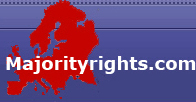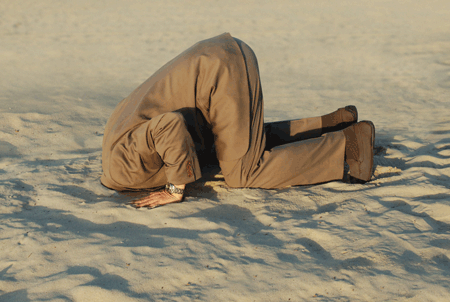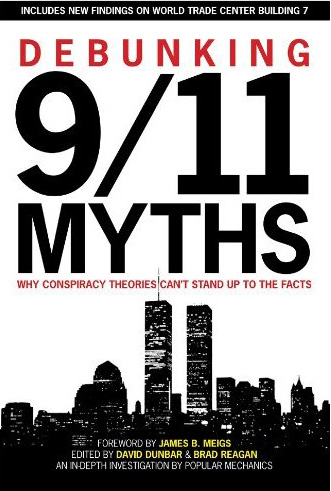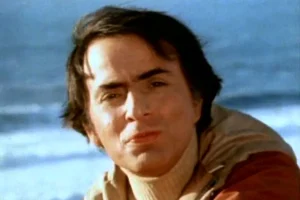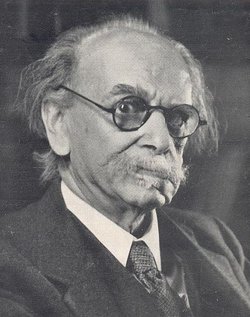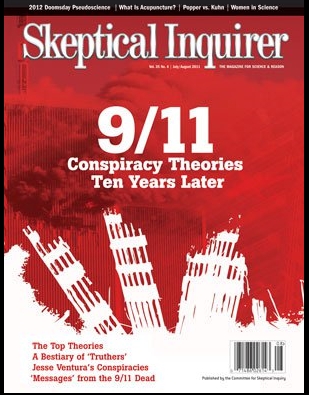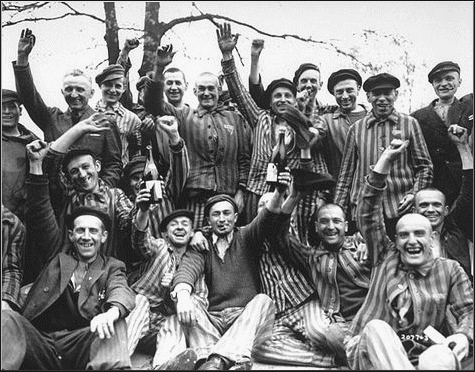The recent exchange between Greg Johnson and Hadding Scott on the Holocaust is proof that at least some revisionists are deceiving themselves. Take a look at this:
A rational person who has agreed to the common understanding of what the word Holocaust means, and has given a little thought to the matter, would have to concede that Anne Frank was a victim [of] a wartime disease epidemic. The same kind of disease epidemic has occurred in many European wars… [—Hadding, way below]
So Hadding is saying that Anne Frank died of a natural cause, typhus epidemics, omitting to say that her body defenses were weakened as a result of being interned at the Bergen-Belsen concentration camp!
Enjoy the whole exchange and pay special attention to Hadding’s semantic flim-flam (no ellipsis added between unquoted comments):
♣
Hadding said…
Holocaust revisionism primarily challenges the facts of the Holocaust narrative, usually focusing on death totals and techniques of extermination.
I am not aware of any important revisionist focused, as Greg Johnson says, on quibbling about death-totals. Jews always would like to say that revisionists are just quibbling about numbers, but serious revisionism has a much more radical criticism than that.
Second, Holocaust death totals are never going to be revised to zero.
The position of Professor Robert Faurisson is precisely that the Holocaust death-toll is zero. He is able to say this because he begins by defining the word Holocaust: an alleged program of the German government to kill all of Europe’s Jews. There is no evidence for such a program.
The question of how Jews died is crucial. Jews that died of typhus, like Ann Frank, are not legitimately counted as Holocaust victims, because in their deaths they were not intended victims of any program.
How is the German government supposed to have killed Jews in this program? Usually at least 4 million are claimed to have been killed in gas-chambers, either with HCN gas (Auschwitz-Birkenau) or diesel exhaust (Aktion Reinhardt). The other methods by which Jews are alleged to have been killed, hanging and shooting, cannot be unambiguously represented as part of a program to kill all Jews: when the Einsatzgruppen shot Jews on the Eastern Front in retaliation for guerrilla actions, or Jews in camps were hanged for sabotage, it did not have to be interpreted as the expression of an intention to kill all Jews. The gas-chamber story however is unambiguous. The gas-chamber story therefore is the Holocaust.
Because the gas-chamber story is the Holocaust, we can say that the death-toll of the Holocaust is precisely zero.
You can say that a lot of Jews died during the war (although Mark Weber becomes very irresponsible when he concedes that “millions” lost their lives) but there is not one that can be demonstrated to have been gassed. More to the point: there is no alleged homicidal gas-chamber that withstands forensic scrutiny.
When a criminal accusation has no evidence to support it, when key evidence ostensibly supporting the accusation turns out to be fraudulent, we take the position that the accusation is false.
Greg Johnson said…
Hadding, I deal with your points in section 5 above [Greg refers to his recent featured article at The Occidental Observer], in the third point of the bulleted list. Claiming that the Holocaust did not happen on the basis of a strict definition of the term (the plan to kill all Jews) strikes ordinary people as morally obtuse quibbling about definitions, which ignores the facts that (1) Jews were singled out for especially harsh treatment by the Germans, and (2) countless innocent Jews lost their lives because of that policy. In the end, that is all one need claim to say that the Jews suffered their greatest tragedy at the hands of the Third Reich during World War II. Even if the genocidal intent, the gas chambers, etc. go the way of human soap and lampshades, that fact is never going to disappear, so it is indeed fortunate that the fortunes of White Nationalism do not depend on Holocaust revisionism.
Hadding said…
The principle that a clear discussion has to begin with a clear definition of what is being discussed derives from Socrates and Plato. Staying in the realm of mushy, malleable terms, one can never really resolve anything.
Anybody who thinks that establishing what is to be proven is “morally obtuse quibbling” needs to be excluded from the discussion of adults.
I don’t care that most people’s thought-processes are mush. I am not going to compromise for them. You can’t really win those people anyway, until you control their TV shows. I am interested in the people that are able to think.
And there are White Nationalists who are not Holocaust revisionists. Indeed, there are some who hope that the revisionists are wrong.
I wonder who those people could be? The few such individuals that I have encountered over the years were very crude. To think this way would seem to require the combination of unusual degrees of thoughtlessness and callousness. I imagine such a person to be a low-grade criminal-type.
Is this a type of person whose opinion we should value?
Greg Johnson said…
Hadding, I should have said “normal” people rather than “ordinary” people. Normal people think that reducing the Holocaust death total to zero merely by stipulating a particular definition of the Holocaust is morally obtuse quibbling about definitions.
I think it is morally obtuse quibbling about definitions, which is something different than dealing with historical facts, namely the facts that the Germans singled the Jews out for harsh treatment and that many innocent Jews died because of these policies. That is the worst thing that ever happened to the Jews, and it will continue to be a millstone around our people’s neck until we deal with the real sources of Jewish power and white weakness.
Hadding said…
My view is that H-revisionism is not part of an intellectually sound defense of WN, whatever soundness H-revisionism might possess as a field of historical research.
You’re going to be dragged into that issue whether you want it or not. To respond that it has no relevance because you’ve drawn an imaginary chalk-line that puts Hitler (“Old Right”) on one side and Greg Johnson (“New Right”) on the other is not going to convince anybody, for one thing because nobody, so far as I know, has ever used the term Old Right that way before. Everybody is going to see you as trying to dodge the issue.
Hadding, I should have said “normal” people rather than “ordinary” people. Normal people think that reducing the Holocaust death total to zero merely by stipulating a particular definition of the Holocaust is morally obtuse quibbling about definitions.
Okay so I am abnormal because I demand clarity?
You said what you meant the first time. Ordinary people means people who don’t do much thinking. The Holocaust story has been able to survive largely because people don’t want to think about it. They would rather agree to give the Jews some money to take away the gory pictures than to investigate whether what is being said is valid or not. It is reprehensible that our thinking class has allowed the Jews to get away with this.
Any intelligent discussion of the matter must begin with a definition of what is being discussed. The fact that a typhus casualty like Anne Frank can be passed off as a famous “victim of the Holocaust” shows that failure to think through what is meant by the word Holocaust, i.e. failure to define the term, is a large part of the problem.
If you reject the proposition that terms have to be defined before a rational discussion can occur then I have to ask from what kind of sorry institution you got your doctorate, because, while you are manifestly able to churn out large quantities of verbiage as needed to meet word-counts and term-paper due-dates, the foundation of clear discourse has somehow been neglected.
Greg Johnson said…
RE “not dealing with the Holocaust” or “running away from the Holocaust”: you are begging the question, since I take pains to argue that WNs do need to deal with the Holocaust, but Holocaust revisionism is not the way to do it.
Hadding said…
since I take pains to argue that WNs do need to deal with the Holocaust, but Holocaust revisionism is not the way to do it.
You advocate a lame conservative response, which means not challenging the assumptions, even when you know that they are false. Idealistic people will have only contempt for this.
Greg Johnson said…
Hadding, you need to deal with my arguments rather than simply try to stick negative labels on them.
Hadding said…
Since I explained what I meant by conservative rhetoric (not challenging the enemy’s assumptions) it should be pretty much self-evident that this is an accurate description.
Greg Johnson said…
Hadding, I argued at great length what you label “challenging the enemy’s assumptions” (i.e., Holocaust revisionism) is not a winning hand for white nationalism. You don’t challenge that argument. You just try to hang a negative label on it. Well, if this be conservatism, then I’ll make the most of it, since my argument still stands unchallenged. Really, I am disappointed that you can’t come up with something better than this.
1. The distinction between the New Right and the Old Right is real, not imaginary, so it really does not matter what people who are ignorant or indifferent to truth say about it.
2. Google: Anne Frank Holocaust victim.
About 630,000 results come up. Yet you claim that she was not a Holocaust victim because she did not die in a gas chamber, or because the Germans were not trying to kill every Jew on the planet. Sensible people look at that kind of argument and conclude that they are being flim-flammed.
Hadding said…
Back in 2001, a very well-informed gentleman sat me down to explain Holocaust revisionism. The first words out of his mouth were, “No serious revisionist denies that a very large number of innocent Jews died as a result of the Third Reich’s policy of deporting Jews to concentration camps.” I said, “Stop right there. That’s all I need to hear. I didn’t need to hear any more…
That’s pretty stupid Greg. Now for some “morally obtuse quibbling.”
What is a large number of Jews? What is the relationship between the fact that they were deported and the fact that they died? Was it deliberate or accidental? Is what happened to the Jews in this situation a unique event that deserves a special name like “Holocaust” or was it similar to events that befell various other populations in modern times?
I will also say that the omission of the name of the “very well-informed gentleman” is interesting. Who was that man?
Honestly, Greg, I think you are overly sensitive to Jewish suffering. A man tries to tell you what happened and you say, “Stop right there! That’s all I need to hear!”
You need to “step over” that squeamishness and deal with the fact that what happened to Jews in WWII was not unique or special. It was not an attempt to kill all the Jews. Get your head on straight. Then when somebody mentions the Holocaust you can say with serene confidence, “There was no Holocaust.”
Greg Johnson said…
A “serene confidence” won through self-induced imbecility. I’ll pass.
Hadding said…
What you’ve passed on is putting thought ahead of sentimentality. You’ve passed on thinking like a man.
You pretend to be some kind of ideological kin to Jonathan Bowden but you really didn’t grasp what Bowden meant by “stepping over.” Here’s the passage from his speech, Nietzschean Ideas: it’s a short dialog to demonstrate how one ought to respond to moralizing, followed by a statement about what people usually do instead:
You just say, “Liberalism is moral syphilis, and I’m stepping over it.”
“Well I don’t like the sound of that! You sound like a bit of a Fascist to me!” And I’d say, “There’s nothing wrong with Fascism. Nothing wrong with Fascism at all.”
Everyone now adopts a reverse semiotic and runs against what they actually think in order to convince people that don’t agree with them anyway.
You, Greg Johnson, are doing and advocating the opposite of what Jonathan Bowden advocated, even while copying his phrase and pretending to be influenced by him.
Bowden is “stepping over” liberalism as “moral syphilis,” while you embrace and hang on to your squeamishness and even moralize to others that they should be squeamish too.
Bowden asserts that there is “nothing wrong with Fascism,” while you abuse his expression “stepping over” as a rhetorical excuse for distancing yourself from Fascism because you lack the fortitude to side with Bowden. You lack the fortitude to say that there is nothing wrong with Fascism.
You even engage in the “reverse semiotic,” as Bowden calls it, [for] trying to make our enemies’ rhetoric work for us. If Bowden were here, I think he’d be none too pleased with the pretense that you are implementing his ideas.
Greg Johnson said…
I cite one point by Jonathan Bowden that I agree with, and you pop up citing other points where we disagree, and pretend it is somehow a problem with my position. It really is childish.
I agree with Jonathan on the idea that the primary problem of the Holocaust is moral.
I disagree with him RE Fascism: there’s plenty wrong with historical Fascism. We should maintain what is good in it, but we can do better.
No, I am not running a “reverse semiotic”: I am saying what I really believe. So stop bobbing and weaving and making things up and start dealing with the actual argument.
Hadding said…
You and Bowden are utterly opposite. Bowden puts a high value on thinking and masculinity. You represent dodging issues while using some specious excuse.
You are using a reverse semiotic, for example, when you justify your use of the term Holocaust with Google hits. That is not a result of any thinking on your part. You are not authentic, you are not thinking; instead you are trying to operate within the enemy’s rhetoric and assumptions. That is a reverse semiotic.
Greg Johnson said…
Hadding, I accept your confession of bad faith and inability to deal with my arguments.
Hadding said…
Backhanded insults from Greggy:
1. Hadding is not normal.
2. Hadding is morally obtuse.
3. Hadding has “self-induced imbecility.”
4. Hadding speaks in “bad faith.”
5. Hadding is unable to deal with Greggy’s arguments.
I think I’ve dealt very concisely with your slop. Forgive me for not providing excess verbiage for you to nitpick so that you can distract attention from my core points.
Greg Johnson said…
The Google search is a good tool to determine public opinion. If you ask any of our brainwashed brothers and sisters to name one person who died in the Holocaust, I guarantee Anne Frank would top the list. Since these are the people whose minds Holocaust Revisionists presumable wish to liberate, one needs to know what they think.
Now, imagine what kind of figure Hadding cuts when he says, huffily, that Anne Frank did not die in the Holocaust, because (a) she did not die in a gas chamber and the Holocaust is defined as killing Jews in gas chamber, or (b) there was no Holocaust, because the Holocaust means the attempt to kill all Jews, and the Nazis did not do that.
I submit that anyone who took that sort of tack would be seen, correctly, as a flim-flam man. But let me ask some of the other commentators here: what do you think of Hadding’s tactic? Does it free our people of the burden of Holocaust guilt, or does it make revisionists look bad?
Or do you all just ignore him?
Greg Johnson said…
White guilt and self-punishment induced by the Holocaust is a serious impediment to white survival.
So we have to attack this problem. There are basically two ways to do it.
First, one can attack the Holocaust itself via revisionism.
Second, one can attack the psychological and moral roots of the guilt and self-punishment.
The problem with revisionism is that it cannot revise away the fact that the Germans singled Jews out for harsh treatment and a lot of Jews died as a result. The only thing that can be revised away are the lies and myths told about these events after the fact. But no serious revisionist denies these facts, and those facts are Holocaust enough for Jews to be guilt tripping us until the sun burns out.
Does anybody need any clarification of this argument so far? So we need to attack our susceptibility to the guilt-tripping.
Exposing the nefarious lies told about these facts does not deal with the problem, because the victims did not tell the lies. The survivors did. And the victims will still be pitied, even if the survivors are revealed to be contemptible liars and swindlers.
So again, we need to focus on immunizing ourselves to susceptibility to the guilt-tripping.
Arguing that the word “Holocaust” does not apply to the innocent Jewish casualties of the Third Reich is merely a semantic flim-flam, since all those poor dead Jews are still there tugging at our heart-strings, no matter what we call it, or how they were killed, or the motives for the killings, or the stories told about the killings long after the war—which are the subjects of revisionism.
Even if not a single hair on an innocent Jewish head were harmed in the Third Reich, whites would be guilt-tripping and self-flagellating over slavery, the American Indians, and the passenger pigeon.
So again, we need to deal with the moral and psychological roots of the problem.
Hadding said…
Since this is a swipe specifically directed at me, let me just see if I can give a clearer response than I’ve given already.
Arguing that the word “Holocaust” does not apply to the innocent Jewish casualties of the Third Reich is merely a semantic flim-flam, since all those poor dead Jews are still there tugging at our heart-strings, no matter what we call it…
It’s not about what word is to be used. You’re not grasping at all what is accomplished by defining the word Holocaust before we discuss it. If we define our terms, we gain the possibility of clear discussion. From clear discussion you can get clarification of thoughts, so that people may end up with a radically different understanding of a matter as a result of discussing it.
Most people think that “Holocaust” means the attempt by the German government to kill all the Jews. In particular, they understand this to mean killing with gas-chambers. That definition has implications. We can reasonably ask whether various aspects of what passes for the Holocaust make sense under that definition.
How does a typhus epidemic make sense as part of a government’s attempt to kill all the Jews, when the epidemic could not be limited to Jews? A rational person who has agreed to the common understanding of what the word Holocaust means, and has given a little thought to the matter, would have to concede that Anne Frank was a victim a wartime disease epidemic. The same kind of disease epidemic has occurred in many European wars, as far back as the Great Plague of Athens in the Peloponnesian War. But death in a disease-epidemic is really not what we mean we say “the Holocaust.”
What has been more powerful than any other piece of “evidence” in securing popular belief in the Holocaust have been the films and images of emaciated people, dead and alive, from concentration camps captured by the Western Allies. Then you find out that the places where those films were made are no longer claimed to have been killing centers, and that what the images show is the effect of a typhus epidemic. So, since we have defined the term Holocaust as a deliberate attempt to kill all the Jews, we suddenly find that what has convinced most people that the Holocaust occurred is really not evidence for it at all. Those images have been used as spurious evidence to convince the public that the Holocaust story, specifically the gas-chamber story, was true, when a little bit of information and rational consideration reveals that they prove no such thing.
A reasonable person at this point may understand that he has seen essentially no evidence for this claim called “the Holocaust” that he always accepted as true.
Definition of terms is the prerequisite for clear discourse. Sometimes when you clarify the meaning of a word and compare the meaning to specific examples, you find out that what the word was supposed to signify doesn’t exist. This is not “flim-flam”: this is philosophy.
Greg Johnson said…
[responding to another commenter]
1. Yes, I argue that “Whites should concede that Jews suffered during World War II.” It is true, and no serious revisionist denies it, and that is all Jews need to keep playing violins and tugging at the heartstrings of morbidly conscientious whites until we cease to exist.
2. You then state:
“then you go on to believe that this warrants the continued application of ‘The Holocaust’, as if there was something exceptional about Jewish suffering and as if among all of the peoples that suffered in that war, they are so clearly individuated as a people as to warrant the dignity of a separate name and distinct narrative for their experience.”
I think there is a major confusion here.
First, I will charitably assume that, unlike Hadding, you are not merely objecting to the term “the Holocaust” and pretending that such autistic semantic quibbles matter.
Second, the major point of my article is that Whites need to stop caring so much about dead Jews. We need to stop thinking like Jews (i.e., in a Judeo-centric way) and come up with a white-centered perspective on genocide, because whites are being destroyed right now by soft, cold genocide. Moreover, Jews are the major architects of that genocide. Jews have (and continue) to subject whites to genocide on a far larger scale than anything that happened to the Jews in WW II. Once we start thinking that way, we are immune to the Holocaust guilt trip.
Third, everything is unique metaphysically speaking. But everything is also comparable to everything else. Jews insist that the Holocaust is both unique (which is trivially true) and incommensurable (which is false). That is just a projection of Jewish hyper-ethnocentrism, which the rest of humanity needs to identify and reject. Jews can sell this absurdity because they have the power and money to do so. We need to immunize our people so they stop buying it.
3. You are misrepresenting my views on Israel. Philosophically speaking, if ethnonationalism is true and good, it applies to Jews too. I think we need to be consistent and principled on that point.
But that does not imply any sort of political support of Israel: no aid, no alliances, nothing. Of course it doesn’t exclude them either. For it is conceivable that a WN state might find such things to be in their interests (really in their interests).
As for any relations between WNs today and Jews: I make it very clear that the European nationalists who suck up to Jews are fools who are being played. Jews are the most powerful people on the planet. White nationalists have no power at all. Nobody makes alliances with the powerless. So when Jews try to establish friendly ties with White Nationalists, there can be only one agenda: the subversion of White Nationalism.
Hadding said…
First, I will charitably assume that, unlike Hadding, you are not merely objecting to the term “the Holocaust”…
I have explained very clearly that this is not what I am about. I define terms so that they can be discussed intelligently.
This accusation of merely trying to change what things are called as a kind of “flim-flam” is really projection on your part.
♣
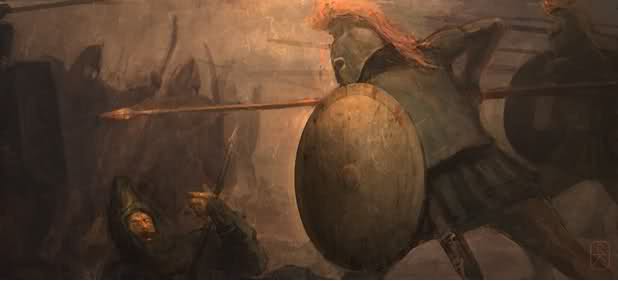
Read the 500+ responses to Greg Johnson’s piece at TOO here.
As to whether or not millions of Jews died as a result of the “harsh treatment” they received in the Third Reich, this is my strategy: Stop using revisionism as a shield against the Jews’ accusations (“I didn’t do it!”). Use your spear instead (“You started the massive killing of white civilians, fucking kikes!”). As explained in my response to Greg in the above-linked thread:
So we need to rethink the issue and find a new way. [—Greg Johnson]
The “new way” is so obvious. Forget revising the Holocaust story. Focus on what the Jews actually did: Yagoda killed more innocent people than those attributed to Himmler.
As someone who used to comment at TOO [Wandrin] has said: Hitler didn’t win an electoral majority. He won most seats and was given the Chancellorship by the German elite in 1933: the year after the Jewish Bolsheviks deliberately starved six million Ukrainians to death. Can there be any real doubt that the threat of the Bolshevik terror influenced both the German voters and the decision to give Hitler the Chancellorship? Why isn’t this taught in the schools?
Tens of millions killed in the first industrial scale mass murder in history from 1917 onwards—the Red Terror and War Communism under Lenin and Trotsky’s leadership long before Stalin—culminating in the deliberate starvation of six million Ukrainians in 1932 as revenge for past anti-Jewish pogroms. Why isn’t this taught in the schools?
Trillions of dollars and millions of man-hours have gone into creating a global memorial to the Holocaust—films, books, indoctrination of millions of school children, countless museums—and absolutely nothing to commemerate the tens of millions murdered by the Jewish Bolsheviks? Not only a Holocaust in its own right but the primary cause of the subsequent Fascist reaction they say came out of inherent evil of the Aryan nature: a position that would be impossible to sustain if Jewish involvement in the Bolshevik holocaust was more widely known.
So, compare and contrast the collective memorial to the Jewish dead with the collective non-memorial to the non-Jewish dead and you have Talmudic morality caught in the headlights.
Every single penny they spent on building Holocaustianity then works for us. Every film, every book, every museum highlights their denial of the Bolshevik holocaust and the value they place on non-Jewish dead: Zero.
Use this to destroy their moral authority first and then their power to enforce taboos…
Time to use the spear, not the shield!
Rather than writing a review longer than the book itself, I’ll just first note that with Thomas Dalton’s book, the biggest single problem has finally been addressed: that it has been impossible to grasp the big picture of the holocaust because of the incoherence of the story.


